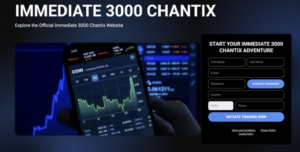Table of Contents
ToggleBuying bitcoin and cryptocurrencies in New Zealand
Obtaining Bitcoin and other cryptocurrencies in New Zealand takes under 10 minutes. Register with a cryptocurrency platform, complete identity verification, and purchase your preferred coins.
Many exchanges work across desktop and mobile, enabling effortless trading. For more significant investments, withdraw to a private hardware wallet for security.
Alternatively, peer-to-peer exchanges allow purchasing cryptocurrency without identity checks, albeit through a complex process suiting advanced traders. Buying cryptocurrencies in New Zealand requires minimal time commitment because of streamlined sign-up systems and intuitive interfaces catering to new and experienced investors.
6 Best Crypto Exchanges in New Zealand
1. AvaTrade
Pros: Regulated in multiple jurisdictions, offering a secure trading environment. Offers a wide range of financial instruments beyond cryptocurrencies.
Cons: Limited to CFDs (Contracts for Difference) for cryptocurrencies, meaning you can’t own the underlying asset directly.
Ease of Use: User-friendly interface suitable for both beginners and experienced traders.
Fees: Competitive spreads but no commission on trades. Overnight fees may apply.
Minimum Deposit: $100.
Reputation: Established in 2006, AvaTrade is considered reputable and reliable.
Demo Account: Available, allowing users to practice trading strategies without risk.
Verification Time: Can take up to 24-48 hours, depending on the verification documents provided.
Payment Methods: Supports credit/debit cards, bank wire transfers, and several e-wallets.
Founder: Negev Nosatzki and Emanuel Kronitz.
Headquarters: Dublin, Ireland.
Overview: AvaTrade is a well-regulated forex and CFD broker offering a variety of trading platforms and tools. It caters to a global audience with a focus on security and a comprehensive trading experience.
2. Binance
Pros: One of the largest and most popular exchanges with a vast selection of cryptocurrencies. Offers low trading fees.
Cons: Has faced regulatory scrutiny in various countries.
Ease of Use: Offers an advanced trading platform that may be complex for beginners but is highly appreciated by experienced traders.
Fees: Low trading fees starting at 0.1%. Discounts available for BNB token holders.
Minimum Deposit: No minimum deposit for cryptocurrencies. Fiat deposit minimums vary by currency.
Reputation: Highly reputable in the crypto community, known for its extensive ecosystem.
Demo Account: Futures trading demo account available.
Verification Time: Basic verification can be quick, but advanced verification may take several days.
Payment Methods: Supports bank transfers, credit/debit cards, and crypto deposits.
Founder: Changpeng Zhao (CZ).
Headquarters: Originally in China, now operates in a decentralized manner with no clear headquarters.
Overview: Binance is a leading global cryptocurrency exchange known for its high liquidity, wide range of cryptocurrencies, and innovative features like Binance Smart Chain.
3. Skilling
Pros: User-friendly platform designed for traders of all levels. Offers a range of trading instruments beyond cryptocurrencies.
Cons: Limited cryptocurrency offerings compared to dedicated crypto exchanges.
Ease of Use: Very intuitive interface, making it accessible for beginners.
Fees: Competitive spreads with no commission on trades. Overnight fees may apply.
Minimum Deposit: €100.
Reputation: Relatively new in the market but growing rapidly with a focus on transparency.
Demo Account: Available, providing a risk-free way to learn trading.
Verification Time: Generally quick, with verification often completed within 24 hours.
Payment Methods: Credit/debit cards, bank transfer, and e-wallets like Skrill and Neteller.
Founder: Not widely publicized.
Headquarters: Cyprus.
Overview: Skilling is a European broker offering CFDs and forex trading with a strong emphasis on simplicity and education for its users.
4. Bitstamp
Pros: One of the oldest cryptocurrency exchanges known for its reliability and security. Offers advanced trading features.
Cons: Limited selection of cryptocurrencies compared to larger exchanges.
Ease of Use: Offers a straightforward interface for beginners, with advanced tools for experienced traders.
Fees: Competitive fee structure with volume-based discounts. Charges a small fee for withdrawals and deposits.
Minimum Deposit: No minimum deposit for cryptocurrencies. Fiat deposits have a minimum depending on the method.
Reputation: Highly reputable, with a strong emphasis on compliance and security.
Demo Account: Not available.
Verification Time: Can take several days, depending on the volume of applications.
Payment Methods: Bank transfer, credit/debit cards, and crypto deposits.
Founder: Nejc Kodrič and Damijan Merlak.
Headquarters: Luxembourg.
Overview: Bitstamp is one of the longest-standing crypto exchanges, known for its regulatory compliance and a secure trading environment, catering to both beginners and experienced traders.
5. Kraken
Pros: Highly respected for its security measures and transparency. Offers a wide range of cryptocurrencies and fiat trading pairs.
Cons: The platform can be complex for beginners.
Ease of Use: Offers a basic interface for new users and an advanced interface for experienced traders.
Fees: Competitive fees that decrease with increased trading volume. Deposit and withdrawal fees vary by method and currency.
Minimum Deposit: Varies by asset; some fiat deposits have a minimum.
Reputation: One of the oldest and most reputable exchanges in the industry.
Demo Account: Not available.
Verification Time: Basic verification can be instant, but higher levels requiring more documentation can take several days.
Payment Methods: Bank transfers, wire transfers, and crypto deposits.
Founder: Jesse Powell.
Headquarters: San Francisco, California, USA.
Overview: Kraken is a well-established exchange known for its wide range of supported currencies, strong security practices, and comprehensive features catering to various user needs.
6. OKX (formerly OKEx)
Pros: Offers a broad array of crypto trading options, including futures and derivatives. Competitive fees.
Cons: Has faced regulatory challenges in some countries. The platform’s features may be overwhelming for beginners.
Ease of Use: Provides multiple platforms tailored to different levels of expertise, though it has a steeper learning curve for new users.
Fees: Low trading fees with further discounts for OKB token holders.
Minimum Deposit: No minimum deposit requirement for cryptocurrencies.
Reputation: Known for its robust trading platform and wide range of features but has faced regulatory scrutiny.
Demo Account: Futures and options trading demo account available.
Verification Time: Basic verification is quick, but full verification can take several days.
Payment Methods: Includes bank transfer, credit/debit cards, and cryptocurrencies.
Founder: Star Xu.
Headquarters: Relocated to Malta in 2018 amid a more favorable regulatory environment.
Overview: OKX is a comprehensive digital asset exchange offering a wide range of trading products, including spot, futures, and derivatives markets, catering to a global user base with its advanced trading platform.
What is required to buy cryptocurrency in New Zealand
Investing in Bitcoin and cryptocurrency in New Zealand only requires an internet connection and a phone. However, taking a few preparatory steps will ensure a quick, seamless experience:
- Crypto exchange account:
First, set up an account with a reputable New Zealand cryptocurrency exchange in advance
to enable immediate trading once ready.
- Your payment method:
Have a payment method – like a bank account, debit card, or PayPal –
connected to your exchange account to purchase coins readily.
- Identification:
Prepare a digital copy of your photo ID to provide identity verification, which New Zealanders exchanges
requires to comply with KYC (Know your customer) anti-fraud regulations.
- Crypto Wallet:
Optionally, create a secure personal crypto wallet ahead of time to store purchased assets for
added safety, such as a simple MetaMask wallet for example.
While peer-to-peer exchanges allow cryptocurrency acquisition without ID checks, we advise only leaving that complex method to experienced investors.
For most beginners, following these four preparatory steps will offer the fastest way to start buying Bitcoin and joining the world of crypto finance in New Zealand.
Steps to Buy Cryptocurrency in New Zealand
- Create an account with an exchangeComplete the KYC verification processCompleting identity verification is essential when signing up for a cryptocurrency exchange in New Zealand. This mandatory Know Your Customer (KYC) process validates user information to comply with anti-fraud regulations.To breeze through verification, have photos of the front and back of your photo ID ready for immediate upload during the exchange signup process.Valid forms of ID include passports, driver’s licenses, or national ID cards.
Fortunately, most exchanges instantly approve KYC verification requests digitally. Any delays typically resolve within 1-2 days at most. These tips will help cryptocurrency investors prepare documents to swiftly finish identity confirmation, allowing fast access to exchange trading features and crypto asset purchasing.
- Make a fiat depositPurchasing Bitcoin and other cryptocurrencies requires linking a bank account or credit card to your preferred crypto exchange.
Exchanges like Kraken and Coinmama accept fast payment methods, including Electronic Funds Transfers, SEPA Bank Transfers, and Wire Transfers.
While some payment options are instantly available, bank transfers can take several days. Checking the estimated arrival time for your chosen payment method will set transaction expectations.
With your account funded, you can seamlessly convert deposits to popular coins like Bitcoin and Ethereum with just a few clicks. Selecting instant funding options when possible permits buying digital assets more rapidly.
- Buy cryptocurrencyAfter funding your crypto exchange account, you can finally purchase your first fraction of Bitcoin. Significantly, exchanges allow buying just a few dollars of Bitcoin rather than requiring a complete coin purchase.
Exchanges divide Bitcoin into smaller units. Instead of buying an entire bitcoin valued at around $25,000, you can start by investing as little as $5-10 to familiarize yourself with owning this digital asset class.
With the lowest barriers to entry on reputable platforms, anyone can become a Bitcoin owner. This flexibility makes cryptocurrencies accessible investment vehicles whether you have $5 or $500,000 to allocate.Test the waters with a small bitcoin position, and consider building your portfolio over time when ready.
- Send your bitcoin to a personal walletAfter purchasing Bitcoin or other cryptocurrencies, it is highly recommended to withdraw them to a personal wallet you control for optimal security.
While exchanges provide an easy way to buy and sell coins, their centralized nature makes them prime targets for hackers aiming to steal user funds.
Billions have been lost from exchange breaches over the years. Instead, using a non-custodial hardware or software wallet where you control the private keys protects assets from external threats. These personal wallets empower users to possess their digital assets in a way analogous to holding physical cash.Taking the quick, additional step to transfer any purchased cryptocurrency to a personal wallet mitigates third-party risks inherent to exchanges. Doing so gives peace of mind that your investment is safe in the blockchain’s decentralized environment outside the control of companies and the vulnerabilities they possess.
What type of New Zealanders crypto exchanges are there?
New Zealand cryptocurrency investors can choose from various exchange types to purchase and trade digital assets.
- Centralized exchanges like Binance or Coinbase operate through a company that holds user funds and facilitates transactions. Investors create accounts, deposit capital, and conduct trades by relaying orders through this intermediary.
- Decentralized exchanges have no centralized authority. Peer-to-peer software connects buyers and sellers directly to execute crypto transfers between their respective wallets. Without registration requirements, these platforms offer autonomy but less convenience.
- Peer-to-peer (P2P) exchanges provide a hybrid model. A central body matches individual traders but does not custody assets. The intermediary releases payments only when both parties in a matched order have transmitted their funds. This prevents fraud
while retaining more user control relative to centralized exchanges.
Evaluating their benefits and drawbacks can inform New Zealanders investors’ exchange selection based on privacy, ease of use, fees, and asset availability to best suit personal crypto trading needs.
What is the best Bitcoin wallet in New Zealand?
Cryptocurrency wallets like MetaMask and Trust Wallet are globally accessible without location restrictions since they operate privately beyond regulatory oversight. These leading wallet services enable secure asset storage functionality for crypto owners worldwide.
However, many newcomers prefer all-in-one platforms that integrate exchange and wallet features into a single account for simplicity. Reputable companies like Binance and OKX allow users to purchase cryptocurrencies directly on their exchanges while also providing integrated wallets to store assets on-platform post-trade.
Consolidating crypto exchange and wallet capacities streamlines digital asset management for investment and trading. This bundled approach also suits crypto beginners through more centralized, user-friendly applications. As market infrastructure advances, seamless user experiences equip everyday investors to access decentralized networks. Integrating multiple crypto functions into unified platforms remains the predominant trend, making blockchain participation effortless.
Summary and conclusion
Investing in popular cryptocurrencies like Bitcoin and Ethereum in New Zealand requires signing up for a licensed digital asset exchange. Ideally, opt for a platform regulated locally by the Non-Bank Financial Institutions Regulatory Authority (NBFIRA) to ensure your funds receive legal protections.
This guide outlines straightforward steps for newcomers to purchase cryptocurrency seamlessly through a reputable New Zealand exchange. Whether seeking Bitcoin as a long-term store of value or for speculative day trading, the chosen platform should offer an intuitive interface, competitive fees, and support for buying your preferred coins.
Carefully consider investing aims and risk tolerances. With abundant choices, selecting the right New Zealand crypto exchange tailors the experience to match your needs – enabling educated crypto-asset exposure backed by local consumer protections. Follow our advice for simplified acquisition of Bitcoin or other top blockchain projects.
Frequently Asked Questions
-
Can I buy Bitcoin in New Zealand?
Residents of New Zealand can purchase cryptocurrencies, although certain constraints on access may exist.
The most straightforward method is registering with a New Zealand-based digital asset exchange, funding your account via bank transfer or card payment,
and buying Bitcoin or alternative coins directly on their trading platform.As cryptocurrency adoption accelerates globally, options for investing in decentralized networks continue expanding within New Zealand’s borders. Residents can buy top coins like Bitcoin and Ethereum with an authorized local exchange to join the emergent blockchain economy.While specific regulations remain under development, motivated citizens have vehicles to participate by accessing international or peer-to-peer crypto services if desired. With the foundation in place and barriers lowered, New Zealand is ready to reap the innovations of the cryptocurrency era and the world’s leading economies.
-
Is Bitcoin legal in New Zealand?
Purchasing bitcoin and other cryptocurrencies is legal in New Zealand, enabling participation in digital asset markets. However, legislative frameworks are still developing around these new technologies. Using a licensed New Zealand crypto exchange ensures proper oversight when trading coins.Still, some obstacles remain for seamless access. Many global exchanges need more formal credentials in New Zealand as regulations adapt to crypto. Additionally, domestic banks sometimes restrict transactions with digital asset exchanges, including depositing fiat or withdrawing trading proceeds.Yet by selecting exchanges satisfying compliance procedures, New Zealanders residents can confidently buy, sell, and trade top cryptocurrencies. As the ecosystem evolves, aided by emerging regulations to support innovation, accessibility barriers should decline to make New Zealand an inviting destination for blockchain’s potential benefits. The foundations exist for citizens to unlock value from this asset class.
-
What is the best crypto exchange to buy bitcoin from in New Zealand?
AvaTrade stands out as the best cryptocurrency exchange in New Zealand, known for its affordable fee structure. It delivers an exceptional user experience at a competitive rate,
ensuring transparency by avoiding any unforeseen hidden charges. -
Can I buy Bitcoin in New Zealand using a credit card?
A convenient way to buy cryptocurrencies on New Zealanders digital asset exchanges involves using personal debit or credit cards
to fund accounts after completing know-your-customer (KYC) identity verification. -
Is buying Bitcoin in New Zealand safe?
It is possible to safely purchase cryptocurrencies in New Zealand using a trusted digital asset exchange that prioritizes user protection and financial transparency.Ideal crypto trading platforms keep customer funds separate from company holdings in segregated accounts to reduce risk. Additionally, reputable exchanges openly publish financial reserves audits conducted by well-known accounting firms, attesting to their available capital backing user balances.Checking for prudent safeguards like cold storage arrangements, insurance coverage, and advanced encryption allows New Zealanders investors to identify secure, dependable exchanges.
Platforms backing accounts through tangible assurances can provide peace of mind against financial losses.
By vetting security and accountability measures before transacting, residents can confidently participate in the cryptocurrency ecosystem, knowing robust measures secure holdings from undue risk. Selecting exchanges upholding reliability principles enables accessing this innovative asset class through tried-and-tested consumer protections.








